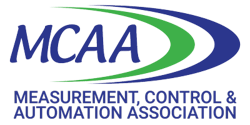Supporting the automation supply chain through turbulent times
Transcript
Keith Larson: Afflicted by both a global pandemic and a chronic shortage of qualified workers, the process and manufacturing industries have perhaps never relied more heavily on the outside organizations that support the measurement and control systems that are so central to our critical infrastructure. And for that supporting cast of suppliers, reps and distributors, integration engineering firms, the ability to collaborate and share best practices with one another has perhaps never been more critical to the execution of that supporting role.
Hello, my name is Keith Larson, publisher of Control magazine and ControlGlobal.com, and you're listening to a Solution Spotlight episode of our Control Amplified podcast, sponsored today by the Measurement, Control & Automation Association and their upcoming Industry Forum, to be held April 24 through 26 in Arlington, Texas. Joining me today to discuss the challenges facing the industrial supply chain today and the role organizations such as MCAS play in supporting it is Skip Tierno MCAA chairman, and Teresa Sebring, president.
Welcome Skip and Teresa. It's a real pleasure to chat with you today.
Skip Tierno: Thank you, Keith. It's a real pleasure being with you and Teresa today.
Teresa Sebring: Yes, and thank you as well, Keith, we appreciate the opportunity to bring more awareness about the association, the upcoming meeting and how we support this industry.
Larson: Absolutely. Yeah, the Measurement, Control & Automation Association by that name has really only been around for 30 years, but the organization, I know, goes way back much further than that. By way of introduction, Teresa, maybe you can start us off by speaking to MCAA's origins, its evolution and ongoing mission.
Sebring: Absolutely. So, you can actually trace our history back to as early as 1940. We were a subsection of the Scientific Apparatus Makers Association (SAMA). In the early years, a group of manufacturers was then referred to as Recorder Controller Inc., and they produced industry standards. This organization grew to what was then known as the Process Measurement and Control section of SAMA. Fast forward about 40 years to the late 80s, and SAMA began to do some reorganization into sections, which they started to call associations, and that's where the MCAA up to date was born. Then, we're going to fast forward a little bit further to the early 90s, when MCAA withdrew from SAMA and became an independent association. Today, MCAA is a multi-dimensional organization that represents a broad spectrum of industry-leading companies. And for several decades, our mission has stood firm. We help members operate and expand their businesses by providing industry data, market trends, technical education, networking, and so much more.
Larson: Great, great. Skip, in addition to serving as MCAA chairman, you've got a day job as president of UCT Fluid Solutions. Perhaps you can tell us a little bit more about UCT, and what it is about MCAA that has obviously kept you and your company involved?
Tierno: I'd love to Keith, thank you.
So, UCT Fluid Solutions is a key product line under the products division of Ultra Clean Technology, who is a leading developer and supplier of critical systems, components and parts, and ultra-high-purity cleaning and analytical services, primarily for the semiconductor industry. Fluid Solutions has been around more than a half a century with the experience supporting these high-purity and process control applications. The flow control and fluid management solutions address the demanding requirements of a broad number of industries. So, whether it's gas delivery systems for wafer fabrication equipment, or the fluid control systems for oil and gas production applications, our Hamlet brand of valves, fittings and hoses are critical building blocks. Now, we've been members, the MCAA for 15 years, and since I joined the company around seven half years ago, we find the industry and market data and analytics, the networking with the members, and the annual Industry Forum extremely valuable to our business.
Larson: Right, great. I spoke in my introduction about a couple relatively obvious hurdles facing industry of late, namely that pandemic, of course, and worker shortages that seem widespread and persistent, and the pandemic only made some of the worker shortages worse, it seems. What sorts of problems have these larger issues created for MCAA members and their customers?
Tierno: Well, I'll go ahead and address that. Whether you're an industrial automation company or an everyday consumer, we're all feeling the effects of what's been characterized as several global black swan events over the last few years, or events that were highly unlikely to happen but did with severe consequences. So the global pandemic, as you mentioned, hitting us in full force in 2020; the record breaking wildfires and hurricane season that same year; China's energy crisis in 2021; the Russian Ukraine War in 2022; and the European gas crisis in 2022. These events have all had an effect on the global supply chain, as well as worker shortages as companies ramped up to address market demand across several industries, such as record breaking sales in the semiconductor industry, and the resurgence of the oil and gas industry. So, if we just look at the West Texas intermediate prices per barrel adjusted for inflation, back in April of 2020, it was at a low of $22 a barrel, spiked to $116 a barrel in May of 2022, and settling at the end of December around $80 per barrel.
Larson: Still pretty elevated, that's for sure.
Sebring: Yeah, let me jump in and say here that during the pandemic, MCAA also took great pause. We listened to our members, and we knew that these the effects of the pandemic were really going to affect them. And so, as I mentioned, we listened, we focused on their immediate needs. We brought them together via webinars and roundtables to discuss solutions for the rapidly evolving situations; we brought in legal experts; and we hosted various virtual events, again, to keep people connected in such a disconnected time to address some of those workforce issues. We partnered with other members and helped them understand how to strengthen their workforce. We continue to provide compensation information, and we even have a career center to aid in those hiring practices to reinforce that workforce and to try to rebuild it. So, all of these things that were ongoing prior to the pandemic, were even more important during that time.
Larson: Yeah, yeah. MCAA consists largely of instrumentation suppliers, partners and integrators that really support the end users in general. Are they having to take on a more active role in the ongoing support of measurement control solutions, in your experience?
Tierno: I think they are from a standpoint of their goal of promoting the control solutions to their customers. So, they have good visibility on the projects that the customers are engaged in, and by educating their partners and integrators on the advantages and benefits of smart control solutions, for instance, they can enable them to engage the customer in productive discussions on how they can provide them with the ability to improve on their operational efficiencies by using these smart measurement and control systems and solutions-type technology.
Larson: And obviously smart and entails communications or communications-able instruments, has that concept and the Industrial IoT and other technology developments helped make it a more practical reality for ongoing support of those solutions, where a company can actually talk to the installed base of its flow meters out there in industry and, and help the users head off any any issues, that sort of thing? Are you seeing increased adoption of those types of use cases?
Tierno: Oh, absolutely, over the last several years. If you look at this technology, and integrating IoT products, for instance, is key in achieving advanced control and gaining data that can provide this visibility with the ongoing operations and lead to various analytical solutions. And that gives these customers insights on particular operations and prempting failures or issues that may go otherwise unnoticed or detected after the fact, causing system shutdowns. So, extremely important during these times. The challenge is, however, to get to these various stakeholders to come together. So as a team, to understand the importance and benefits of collecting the data via the technology if you talk about IoT, for instance, and integrate the data into the analytics that lead to the solutions, which in turn, lead to an efficient and safe working environment.
Larson: Yeah, well that makes a lot of sense. In what ways do you find that MCAA plays a role to help companies like like like UCT Fluid Solutions or rep distributors or integrators like Applied Controls, for example? How can MCAA help them be more effective in this in this changing role, the way industry is evolving?
Sebring: So, I'll jump in with that one, and Skip can speak to how UCT implements some of the tools and resources, but we provide a wide variety of solutions. So, mainly we focus on the products that our members sell when the markets they serve. We partner with expert organizations for market data and forecasting. When we talk about market data, we're looking at economic indicators that are key to this industry. We maintain internal data for trends and benchmarking, and most importantly, as I mentioned before we listen to their needs. So, when there is something that the membership calls for, we develop it. During COVID, we created a program called Partner Search, which we aided in the connection between manufacturers and potential new rep distributor partnerships. Last year, we launched a new online technology training program, and now, we're working this summer on a new digital sales and marketing resource that we're very excited about. And these are resources for all of our members. It's important to note that we cover a wide variety of job functions from management, sales and marketing, HR, finance, and therefore, we keep the toolbox, if you will full, so that what you need is available exactly when you need it.
Larson: Right. Any particular offerings, from your perspective, Skip, that UCT has been able to take advantage of?
Tierno: Oh, absolutely, I think the the the analytics, the market and industry data has been extremely valuable. Looking at it, keep your finger on the pulse of what's going on from a macro view, and the amount of detail that's provided. The inputs from the members is important to understand booking trends of light companies domestically, as well as internationally. And that, again, just keeps the finger on the pulse of this major industry that we're in. I think the other programs that Teresa mentioned are extremely valuable, because you can you can take that and really use it in 100%, full, all-in as a company or you can really carve out portions of this for particular team members within the company, like we do here at Fluid Solutions.
Larson: Great. Well, I can I can also attest to the utility of the the annual Industry Forum. I'm happy to see that making a return in April, I've always found it very compelling, great networking and great information gathering in that in that venue. Teresa, if some of our listeners are intrigued to learn more about MCAA, would attending the Industry Forum be a good place to start? And if so where can they find out more information on it?
Sebring: Oh, absolutely. The Industry Forum is what I consider a crown jewel networking event. The energy is something that you can't experience anywhere else: coming together of like minds, competitors to discuss industry issues that everyone is facing; the high-level program and the speakers involved; the networking over just two short days is just second to none. So, I invite any of your listeners to join us in Arlington. The MCAA website, www.themcaa.org, is a great place to start. There is an Industry Forum menu that includes an overview, the agenda, the current attendee list, which is almost 200, and we expect to reach 300 before we gather together in Texas. Folks can register online, they can call me directly, and we welcome any and all who would like to attend. And I'm sure once they attend, they will see us in action and want to become more involved with the association.
Larson: Well great. I can say I'm pleased to report that we're, as part of an Endeavor Business Media, we're certainly supporting that forum as well. So, look forward to seeing everybody there.
Thanks so much Teresa and Skip for sharing your perspectives with us today. Also, best of luck with this year's Industry Forum, and I know I'm very much looking forward to seeing you all there.
Tierno: Thank you. Appreciate it.
Sebring: Yes, thank you very much for your time today, and we're excited to be part of the Control Amplified podcast.
Larson: And what's more, my name is Keith Larson. You've been listening to a Control Amplified podcast, with my guests today Skip Tierno and Teresa Sebring of the Measurement, Control & Automation Association. My thanks to for all of you listening, and thanks once again to MCAA for sponsoring this episode. If you've enjoyed this episode, you can subscribe to Control Amplified wherever you find your podcasts. Plus, you can find the full archive of past episodes and a transcript of this one as well at ControlGlobal.com.
Signing off until next time.
For more, tune into Control Amplified: The Process Automation
About the Author

Control Amplified
The process automation podcast
The Control Amplified Podcast offers in-depth interviews and discussions with industry experts about important topics in the process control and automation field, and goes beyond Control's print and online coverage to explore underlying issues affecting users, system integrators, suppliers and others in these industries.


